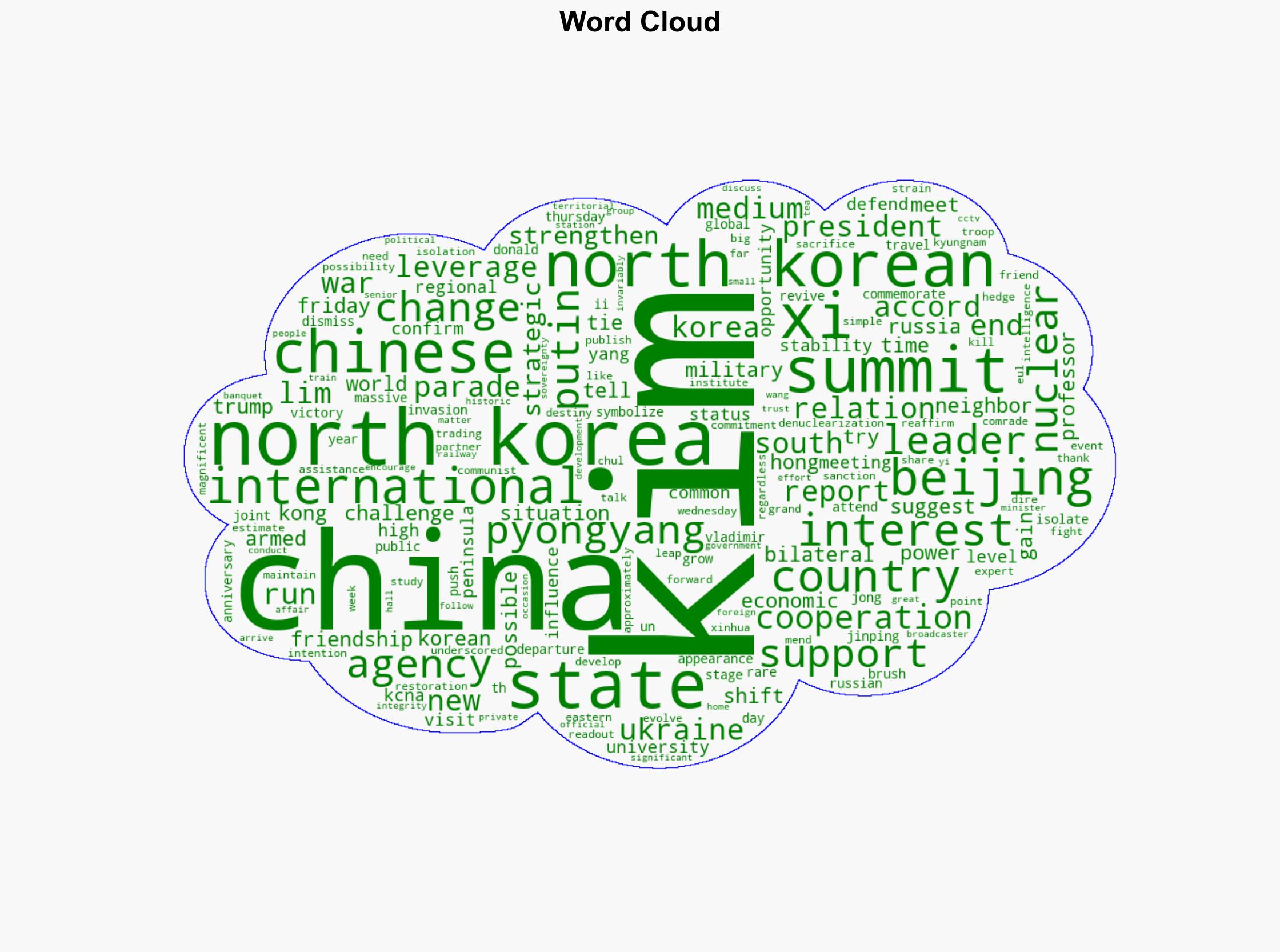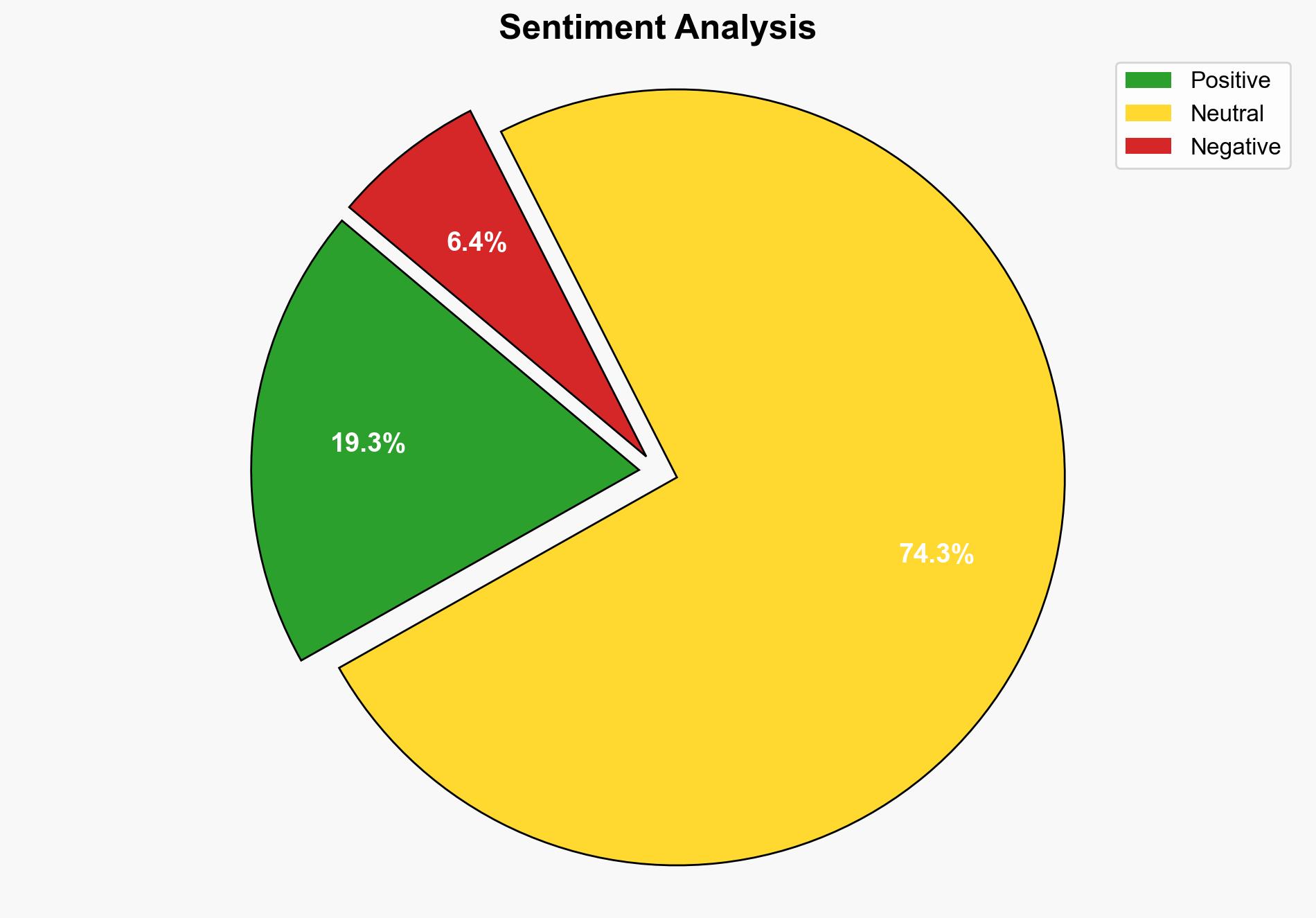Kim Jong Un leaves China after parade visit that could be a ‘leap forward’ in ties – NBC News
Published on: 2025-09-05
Intelligence Report: Kim Jong Un leaves China after parade visit that could be a ‘leap forward’ in ties – NBC News
1. BLUF (Bottom Line Up Front)
The strategic judgment is that North Korea’s recent engagement with China signifies a potential strengthening of bilateral ties, with a medium confidence level. The most supported hypothesis is that North Korea is seeking economic and strategic support from China, leveraging the current geopolitical climate. Recommended action includes monitoring North Korea’s military and economic activities closely, and engaging in diplomatic efforts to mitigate potential regional instability.
2. Competing Hypotheses
1. **Hypothesis 1**: North Korea is strengthening ties with China to secure economic aid and strategic support amid international sanctions and isolation. This is supported by Kim Jong Un’s attendance at the military parade and the emphasis on bilateral relations in state media reports.
2. **Hypothesis 2**: North Korea’s engagement with China is primarily a strategic maneuver to hedge against the potential outcomes of the Ukraine conflict and to maintain leverage over Russia. This is suggested by North Korea’s military support to Russia and the timing of the visit amid global geopolitical shifts.
Using ACH 2.0, Hypothesis 1 is better supported due to the explicit mention of economic assistance needs and the symbolic nature of the parade attendance, which aligns with historical patterns of seeking Chinese support during periods of heightened international pressure.
3. Key Assumptions and Red Flags
– **Assumptions**: It is assumed that China is willing to provide economic support to North Korea despite international sanctions. Another assumption is that North Korea’s military support to Russia is significant enough to influence its diplomatic strategies.
– **Red Flags**: The lack of explicit confirmation from China about economic aid raises questions about the true nature of the discussions. Additionally, the absence of detailed reports on the outcomes of the meetings suggests potential information gaps or deliberate obfuscation.
4. Implications and Strategic Risks
Strengthened North Korea-China relations could lead to increased regional tensions, particularly with South Korea and Japan. The potential for North Korea to leverage Chinese support to advance its nuclear capabilities poses a significant security threat. Economically, enhanced ties might undermine international sanctions, affecting global non-proliferation efforts. The geopolitical landscape could shift if China uses its influence to mediate or alter North Korea’s stance on nuclear issues.
5. Recommendations and Outlook
- Enhance diplomatic engagement with China to encourage transparency in its dealings with North Korea.
- Increase intelligence efforts to monitor North Korea’s military and economic activities.
- Scenario Projections:
- Best Case: China mediates a reduction in North Korea’s nuclear activities in exchange for economic support.
- Worst Case: North Korea escalates its military provocations, leveraging Chinese support to resist international pressure.
- Most Likely: North Korea continues to balance its relations with China and Russia, seeking maximum strategic advantage.
6. Key Individuals and Entities
– Kim Jong Un
– Xi Jinping
– Vladimir Putin
7. Thematic Tags
national security threats, regional focus, geopolitical strategy, international sanctions





